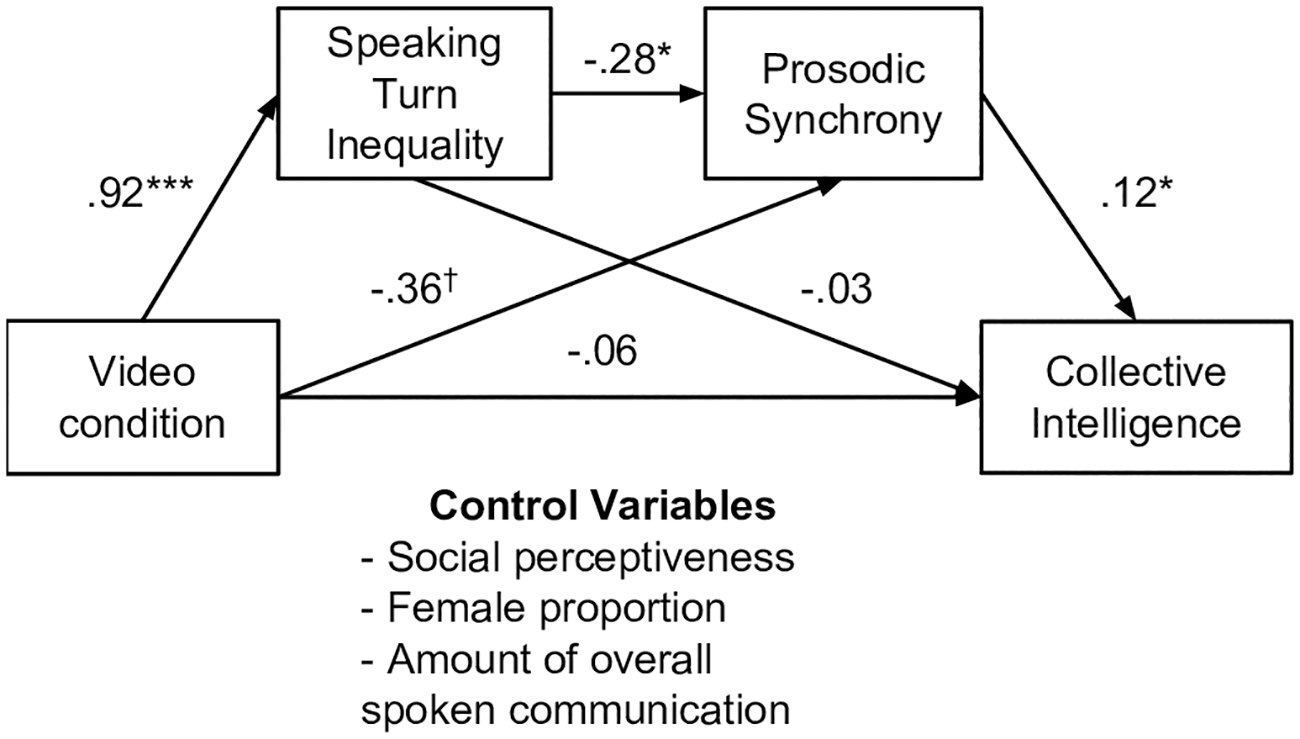Speaking out of turn: How video conferencing reduces vocal synchrony and collective intelligence
Collective intelligence (CI) is the ability of a group to solve a wide range of problems. Synchrony in nonverbal cues is critically important to the development of CI; however, extant findings are mostly based on studies conducted face-to-face. Given how much collaboration takes place via the internet, does nonverbal synchrony still matter and can it be achieved when collaborators are physically separated? Here, we hypothesize and test the effect of nonverbal synchrony on CI that develops through visual and audio cues in physically-separated teammates. We show that, contrary to popular belief, the presence of visual cues surprisingly has no effect on CI; furthermore, teams without visual cues are more successful in synchronizing their vocal cues and speaking turns, and when they do so, they have higher CI. Our findings show that nonverbal synchrony is important in distributed collaboration and call into question the necessity of video support.

Publication: Tomprou, M., Kim, Y. J., Chikersal, P., Woolley, A. W., & Dabbish, L. (2021). Speaking out of turn: How video conferencing reduces vocal synchrony and collective intelligence. PLOS ONE.
Harvard Business Review Article
My Contributions: Helped conceptualize and design the study. Set up system and wrote code to collect and analyze audiovisual and physiological data. Conducted statistical analysis. Contributed to paper writing.
